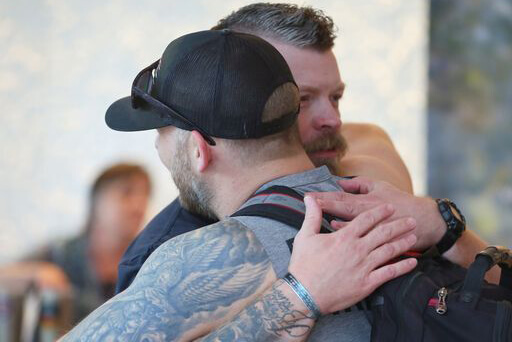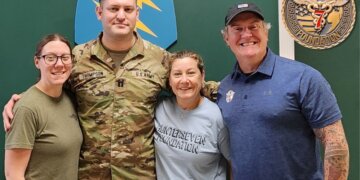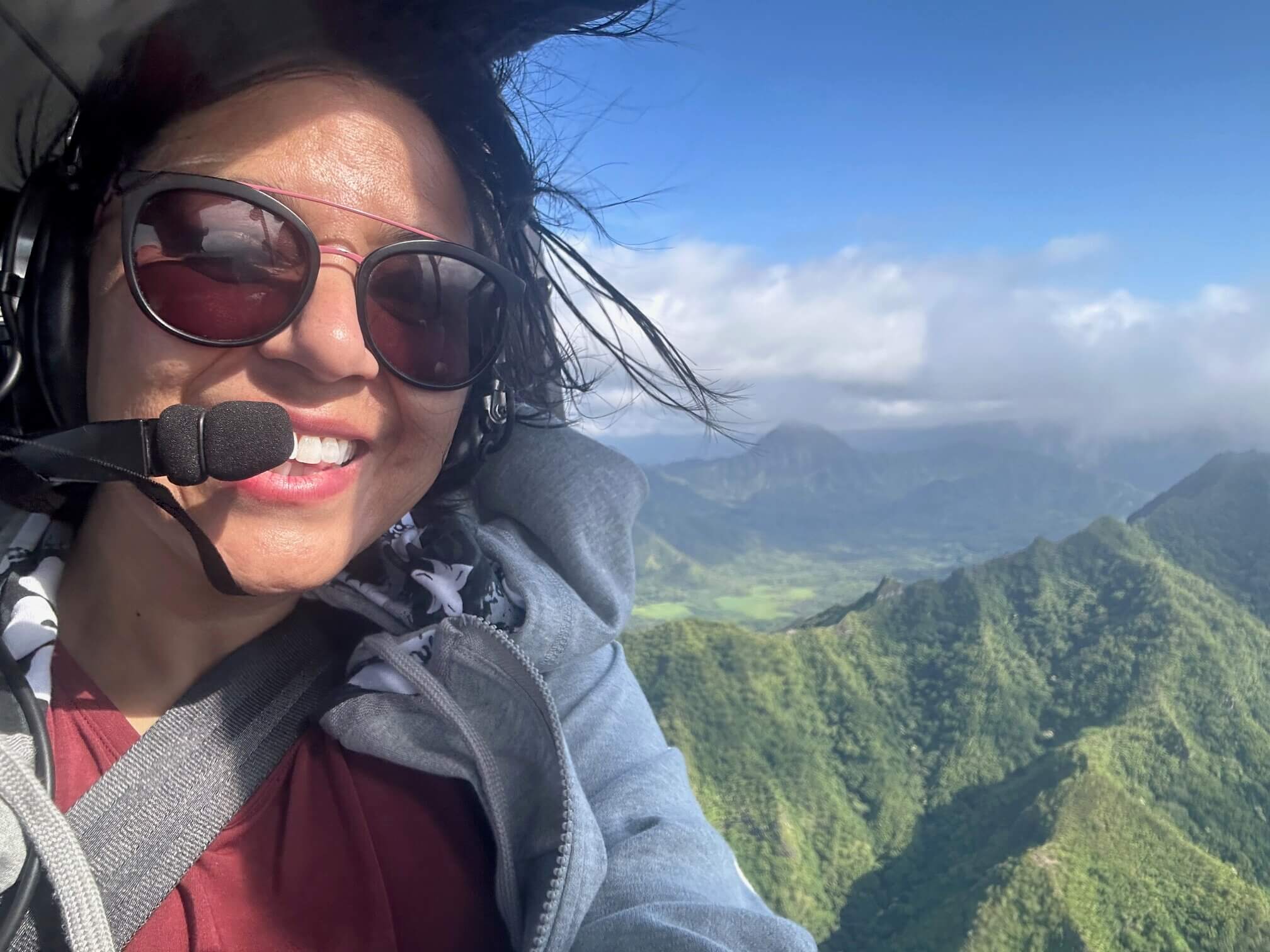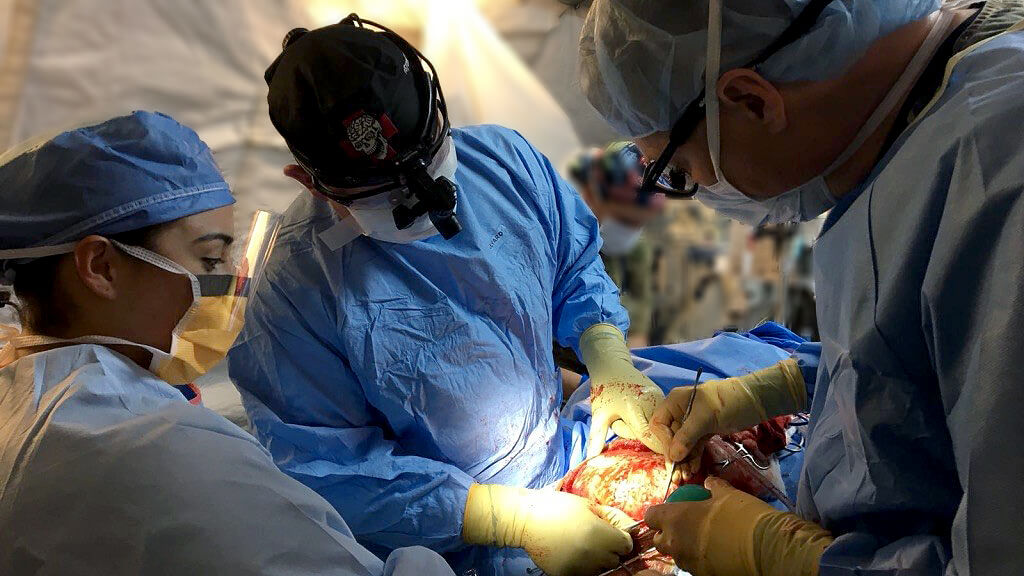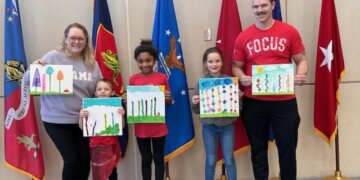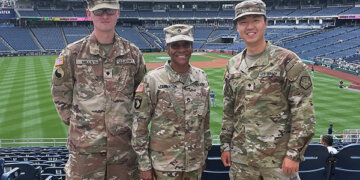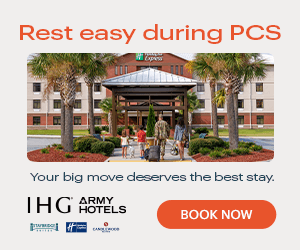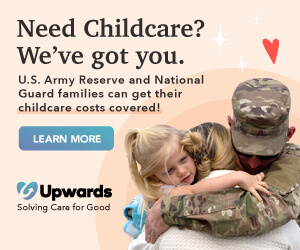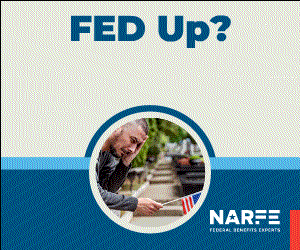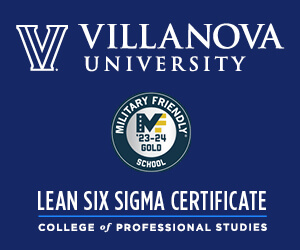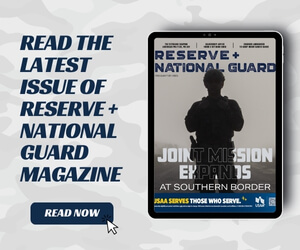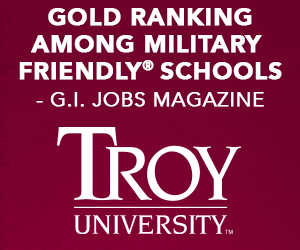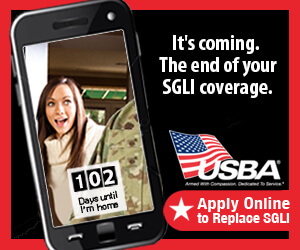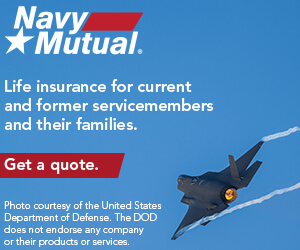Bravery is finding a support group. Bravery is asking to move in with a friend. Bravery is returning to school after more than two decades.
Bravery is asking for help.
That’s what the Department of Veterans Affairs and the Ad Council are showcasing in the latest public service announcement (PSA) from their “Don’t Wait. Reach Out.” campaign.
The Sept. 4 release coincided with the beginning of Suicide Prevention Month and is part of VA’s 10-year strategy to end veteran suicide. Heidi Arthur, the Ad Council’s chief campaign development officer, said this year’s PSA had the opportunity to speak more directly to family and friends, knowing the “critical role” they play in a veteran’s overall health and wellbeing.
“They’re often the first to notice if something’s not right,” said Arthur, who has been involved with the campaign since it began in 2021. “So we wanted to make sure that we’re doing all that we can, with the work that we have out in the market, to surround a veteran with support, love and understanding.”
The 60-second PSA showcases that support in the form parents, spouses, children and friends.
One barrier Arthur said they heard about “over and over again” was that sometimes veterans feel like it’s a sign of weakness to ask for help. Or, they’ll offer help to others but have a harder time accepting help themselves.
“And we know that family and friends are the closest person to a veteran but sometimes they don’t know what to say and what to do. So marrying all of that knowledge, we landed on the idea of bravery,” Arthur said. “One of the bravest things you can do is actually reach out and get help.”
Strategy to end veteran suicide
Nearly 6,400 veterans died by suicide in 2021, according to the 2023 National Veteran Suicide Prevention Annual Report. Suicide also was the 13th-leading cause of death for veterans and second-most cause of death among veterans younger than 45.
Dr. Matthew Miller, executive director at VA Office of Suicide Prevention, stated in an Ad Council news release that the new messages are “powerful and compassionate additions” to the “Don’t Wait. Reach Out.” campaign.
“We all play a role in suicide prevention and this call to action engages community and connections, which are crucial in preventing veteran suicide,” Miller stated. “Through this campaign, we can spread hope that veterans, and all of us, can overcome crises and difficult life challenges.”
VA Press Secretary Terrence Hayes stated in an email that the PSAs have secured more than $79 million in donated media support since the campaign’s launch. More than 3.3 million veterans who are in need of assistance are aware of the campaign and sought help, he said.
“Overall, Veterans who are aware of the “Don’t Wait. Reach Out” campaign were significantly more likely to know about the resources available from VA, to believe it’s important to reach out for help, and to have reached out for help if they needed it,” he said, referencing the Ad Council’s research.
History of the campaign
The VA and the Ad Council relationship is part of a “longstanding history” of partnering with federal government agencies on critical issues, Arthur said.
Hayes said the Ad Council’s PSAs over the past 80 years have “raised awareness and changed attitudes” on many critical social issues, including “Friends don’t let friends drive drunk,” Smokey Bear,” and the “Love Has No Labels” diversity and inclusion campaign.
Since its inception in 2021, the “Don’t Wait. Reach Out.” campaign has updated the nuances of its messaging annually, but maintained the overall concept of hope, according to Arthur.
Its debut “boil” PSA depicted a “frog in a pot of boiling water to encourage struggling veterans to take action before life challenges reach a crisis point,” according to VA. The 2022 PSA focused specifically on female veterans and veterans who were 55 years old and older. Last year’s ad invoked “veterans’ sense of collective responsibility” in breaking down barriers to support.
The talent featured in the PSAs are all real veterans who were selected, in part, by production company casting experts.
“The idea is to encourage and motivate veterans and their family and friends to reach out and get support before things become too challenging and before it’s a crisis,” Arthur said.
Because the actors are veterans and veterans’ loved ones, they speak from firsthand experiences, Hayes said.
“They know better than anyone what it means to be a veteran and how difficult it can be to reach out,” he said.
Resources on VA.gov/REACH are designed for family and friends to help start the conversation with their loved one. For more information, or to find resources for yourself or a loved one, visit VA.gov/REACH.
If you’re a Veteran in crisis or concerned about one, contact the Veterans Crisis Line to receive 24/7 confidential support. You don’t have to be enrolled in VA benefits or health care to connect. To reach responders, Dial 988 then Press 1, chat online at VeteransCrisisLine.net/Chat, or text 838255.
Read comments


